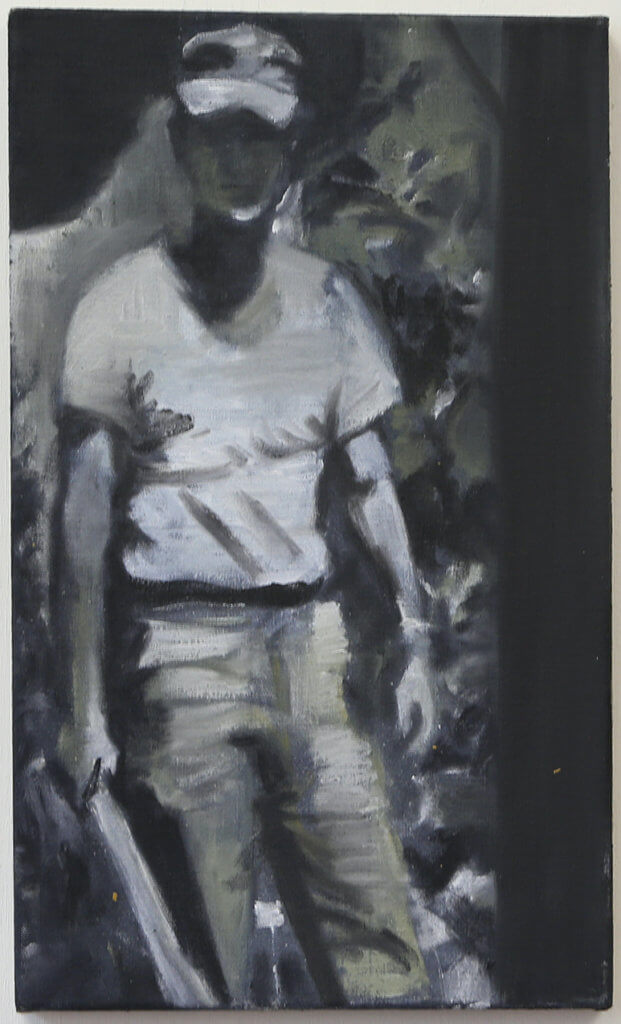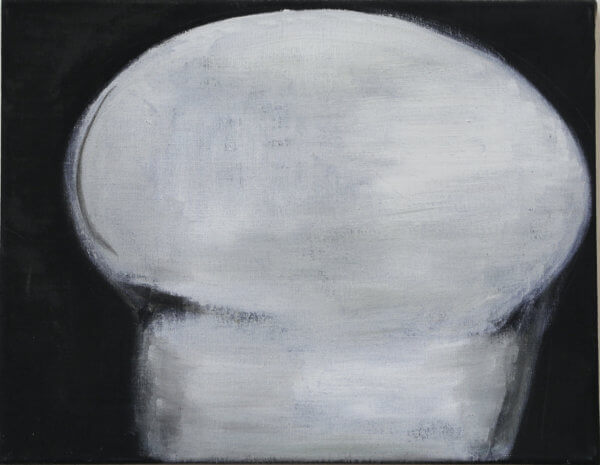Since 2015, Sawangwongse Yawnghwe has been producing art under the banner of Yawnghwe Office in Exile, a fictive museum he founded while searching for alternatives to the histories propagated by state institutions. Focused on unravelling suppressed traumas and recovering personal and collective identities from the neglected margins, the painter has an antagonistic relationship to hegemonic state narratives, one that is rooted in his familial past.
Now based in the Netherlands, Yawnghwe has spent most of his life in exile. He was born in 1971 in a tent on the grounds of a Shan State Army camp. The surrounding jungle was part of the contested Shan territories, which today constitutes Myanmar. Before their annexation, the Shan states defended their autonomy and land, as well as the survival of their languages and cultures, against the imperial interests of the Thai, Chinese, and Burmese empires for six centuries, at times in strategic alliance and at other moments in direct conflict with their neighbours. Then the British invaded in 1885 and, and over five years, gradually subsumed the constellation of Shan enclaves. Under colonial rule, the Shan became a nominally sovereign population headed by Saophas (princes) under the protectorate of the British Crown. After the Second World War, during Myanmar’s negotiations for independence from the British, the Shan groups signed the 1947 Panglong Agreement, throwing their weight behind the establishment of an independent Union of Burma, with the guarantee that after ten years they would have the right to secession. That right was never realized. In 1962, the Union of Burma’s first president, and Yawnghwe’s grandfather, Sao Shwe Thaik, elected by the Union Parliament, was assassinated by the Tatmadaw (Burmese army) after General Ne Win’s coup d’etat, which led to Ne Win’s autocratic rule over Myanmar until 1988.

Sawangwongse Yawnghwe, Bill Young, 2019, oil on linen, 50×30 cm.
After Sao Shwe Thaik’s murder, his wife and Yawnghwe’s grandmother, Sao Nang Hearn Kham, founded an armed resistance movement, the Shan State Army (SSA), which Yawnghwe’s father, Chao Tzang Yawnghwe, also joined after leaving his job as an English tutor at the Rangoon University. In the year Yawnghwe was born, to address the shortcomings of the SSA, his father established the Shan State Progress Party (SSPP), which sought an independent Shan State through political means. However, Chao Tzang Yawnghwe left the party in 1976 after disagreements with other members. Seen as a threat to the military regime and without the support of the SSPP, the Yawnghwe family was no longer safe in Shan State, and crossed the border into Thailand on a horse-drawn carriage headed to Chiang Mai. Sawangwongse Yawnghwe’s father continued his political activities there until 1985, when the family received political asylum in Canada, where Yawnghwe began his art education.
I visited Yawnghwe in Zutphen, a small town in the Netherlands, where he has resided since 2017 with his Dutch partner Kris Berendsen and their two children, Indira and Django…
Published in Art Asia Pacific, (118) May/June 2020, 33-43. [pdf]
